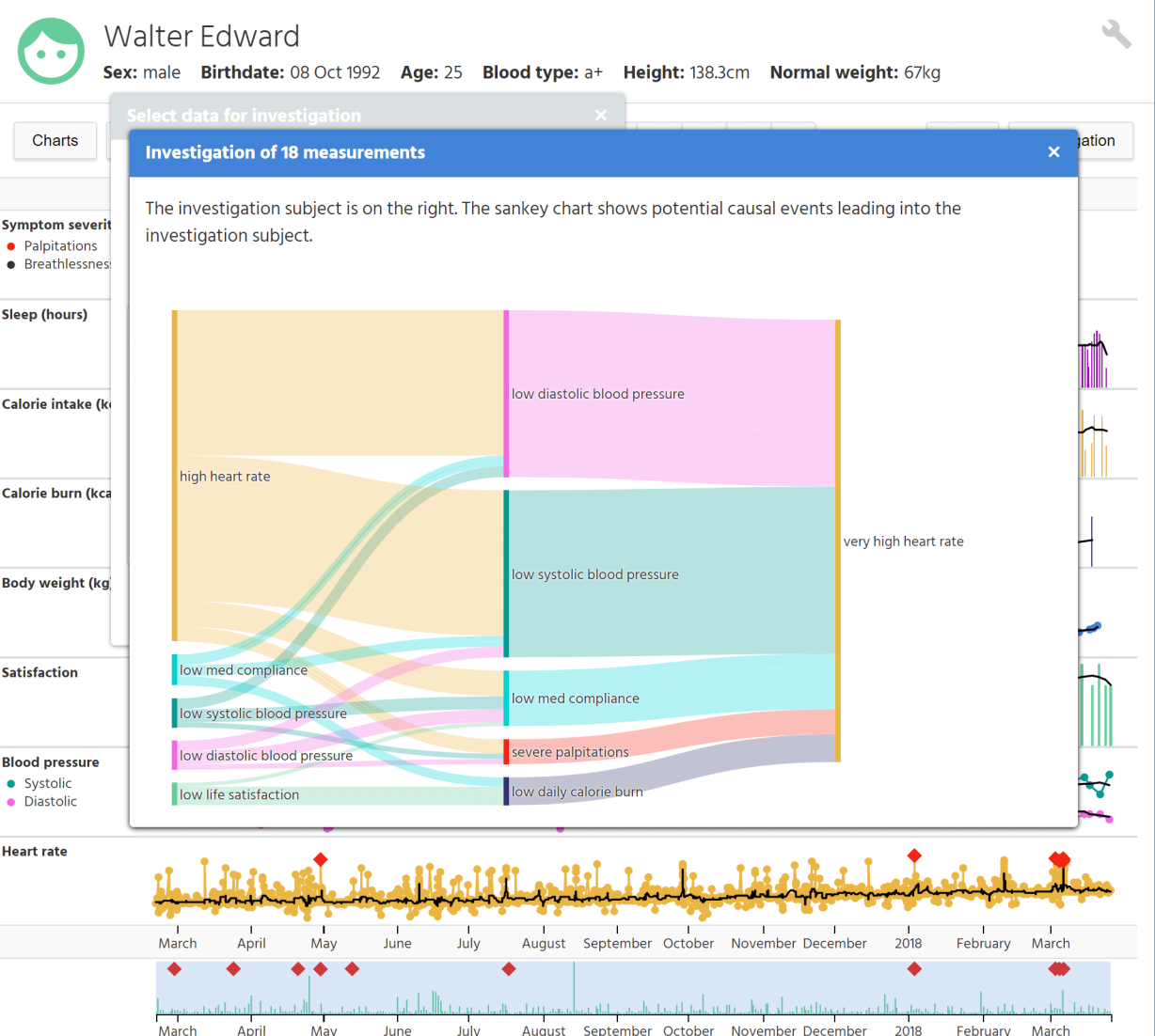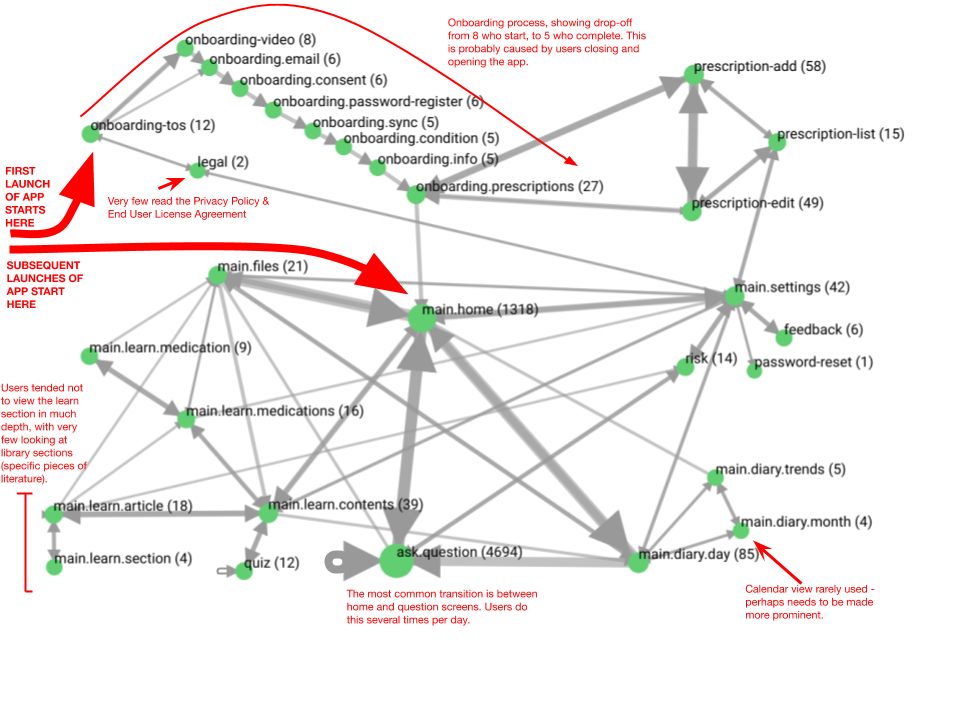We wished to understand how heart failure management could be improved with better information exchange between patient and doctors.
Six people living with heart related chronic conditions (e.g., HF, AF and hypertension) were given an Amazon Fire tablet pre-installed with the LifeCourse app. All patients were 65+. Three had heart failure, three had atrial fibrillation, and three had hypertension. The tablets were issued with printed instructions on how to use LifeCourse and the purpose of the evaluation. The instructions said that the individual should use LifeCourse for one month (preferably every day).
Each individual completed a questionnaire which asked about their age, gender, morbidities, and devices owned. After 2-3 weeks, individuals were interviewed over the phone (15-45 mins) about their experiences using LifeCourse. At the end of the month, individuals were contacted again to gather any final comments. The app itself recorded quantitative data about how the app was used by each individual, including frequency of use, features used, and types of data entered in the LifeCourse record. This was done with the consent of the individuals.

Each individual was asked to describe LifeCourse as if they were describing it to a friend. Three purposes of LifeCourse were clear amongst responses:
One particularly enthusiastic patient was very engaged in data collection and suggested it could be ‘life-saving’ by helping him better understand his health.
Quite interesting so far. It's part of my life now. Amazing how quickly you get into the habit of doing this.
One patient eventually found that the app was using response data to flag unusual activity:
I mostly answer with ‘no’, but there was one time where I felt exhausted and that’s when I noticed that a red dot appeared and I figured out you are flagging unusual activity.
Knowing that responses are used to flag unusual behaviour may provide patients with greater motivation to answer questions, so such feedback should be made more prominent. P1 suggested that important events (e.g., chest pain) should be flagged in the timeline to make them quickly identifiable and accessible.
We saw diverse preferences in how these patients answered questions. Some answered questions as part of their existing routine, while others had to remind themselves to complete the questions in bulk. This latter group had lower adherence and found question-asking more burdensome. Providing instant feedback and meaning to question responses could better motivate patients to answer questions and reduce the burden. Moreover, daily questions may not be conducive to people’s own objectives or life circumstances, so the app may need to be configurable to ask questions less frequently. The questions themselves may also need to be tailorable to each patient, with P3 in particular wanting bespoke questions pertaining to his health while travelling.
Something that is absolutely essential: note taking. Today, I had an episode of fainting that lasted about 10 seconds. Couple of weeks ago I was getting them twice a day. There must be a space like that for recording these events. “Did you feel faint yesterday?” means nothing compared to a place to write in something significant that happened. 200-300 characters would suffice. Should not things like influenza be recorded? I’ve had bacterial endocarditis twice and I need to have antibiotics, for operations. I had sepsis twice. I need to have an antibiotic before any surgery. I think these should be recorded.
LifeCourse encourages users to upload files pertaining to their health. However, patients were unsure what they should upload. P3 suggested it may be helpful to upload a copy of his current prescriptions could be useful to upload. P1 suggested it could be used for ECGs from device:
A year ago, I went to the local hospital, not Southampton. The doctor had no idea why I was ill. If he had a copy of my ECG on the device he would’ve seen I have atrial fibrillation. Should be a means for a “normal ECG” and “temporal ECGs” that a doctor can compare.
It's increasingly important that we, as cardiologists, have an ongoing dialogue with the patient... but the technologies we're seeing tend to share the data with the manufacturers, rather than us, the clinicians responsible for patient care.

LifeCourse empowers patients to manage and share their health information. By providing LifeCourse as an app, patients can keep their data on their person, entering data when it is most fresh in the mind, such as when they experienced palpitations. Immediate data entry enables more accurate information to be recorded that would otherwise be recalled within a consultation. Patients can import data from other sources, such as wearables and health apps. In response to more comprehensive data, practitioners can make more informed decisions about patient care.
The below heatmaps show where users frequently tapped the screen (red indicates the highest concentration of taps).


Overall, feedback has been promising and suggests we are heading in the right direction. We have taken forward the following recommendations: